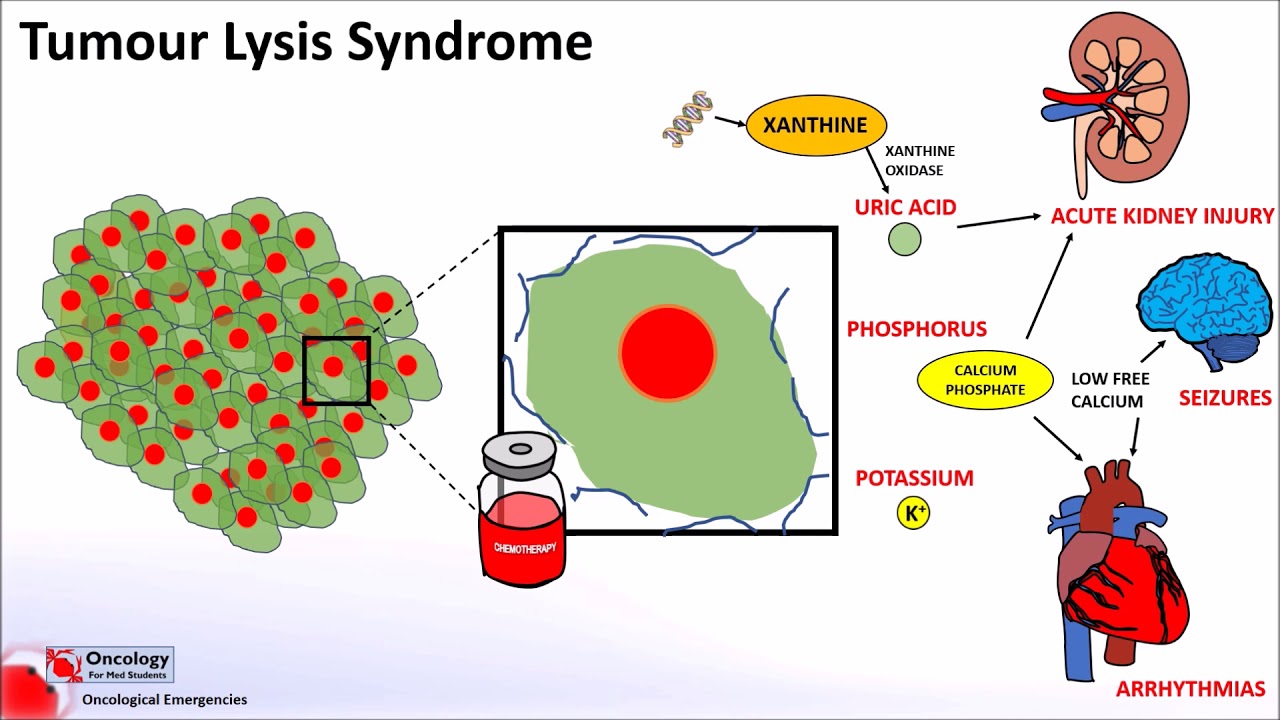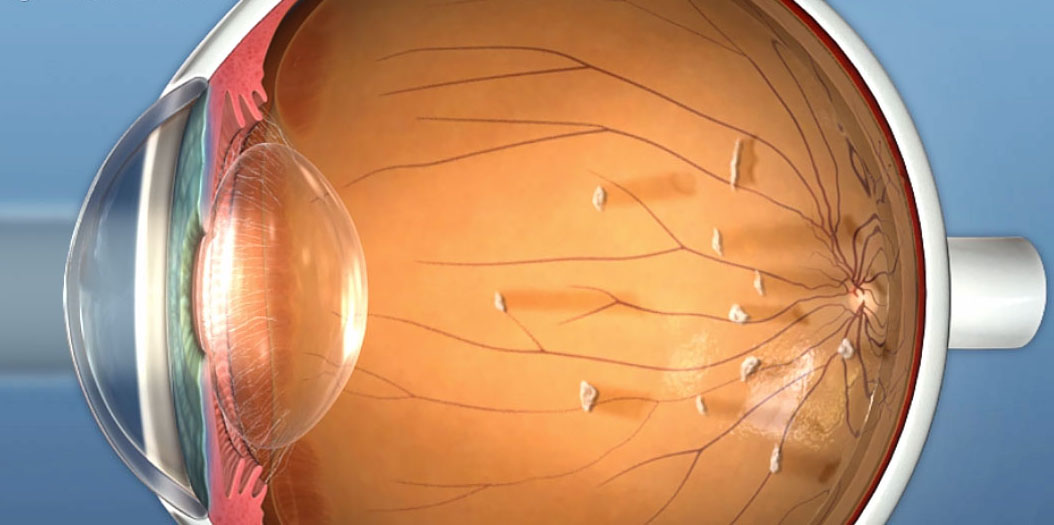It’s hard to find someone who hasn’t heard of tumor lysis syndrome. If any part of the body is swollen, we say it is a tumor. The purpose of cancer therapy is to demolish cancer. If the tumors are cancerous and suddenly break down, in that time, your kidneys will have to labor tougher to eliminate all the entities. You can expand something named Tumor Lysis Syndrome (TLS) if they are not able to hold on.
Along with lymphomas and leukemia, TLS is widespread in people such as blood-related cancers. After your initial chemotherapy, it may occur in short notice, like in a few hours or a few days. This syndrome is unusual, but it can rapidly come to be fatal. It is significant for us to learn how to detect tumor lysis syndrome so that you can attempt timely medication.
Table of Contents
What is tumor lysis syndrome?
If cells in any part of the body swell slowly or rapidly abnormally or inconsistently, we call it a tumor. Let’s know something about tumors today. Mainly divide the tumor into two parts, the first is Benin, and the other is malignant.
Benign tumors are usually soft and grow slowly. Light pressure can cause it to move under the skin. It does not affect any gland adjacent to cancer. It is less harmful than that.
Malignant tumors are reliable and hard. It grows very fast. That has a covering and does not feel different from the skin. It attacks the glands adjacent to the tumor. That is damaged by surgery. It often turns into cancer. Malignant tumors are very critical.
The epithelium is the name of a skin tumor. Tumors of the mucous membranes of the uterus, nose, etc. are called papillomas. The lipoma is a tumor of fatty tissue in the back, shoulders, etc. Osteoma is a bone tumor in the skull, face, nasal cavity, etc. Heman Gemma is the name of a blood vessel tumor in different places. Lymphangioma is a tumor of the lymphatic vessels in the neck, tongue, armpits, etc.
It is not yet known precisely what causes these tumors in the human body.
People of all ages can have tumors but usually become more common as they get older. Researchers believe that genetic and environmental factors are the most critical factor in the development of malignant tumors. Also, the repetition of harmful sub-conditions such as cigarette smoke, pollutants, and too much sunlight can damage cells and speed up the process of tumor formation. When the tumor first begins to develop. Also, it is so small that it does not imply the symptoms of cancer. Its presence is felt over time. For example, lung tumors can cause irritation and persistent coughing sensations. People with brain tumors may experience headaches, dizziness, fatigue, and a lack of coordination.
There are three types of tumors:
- History of connective tissue tumor
- Cytoma
- Teratoma or mixed cell tumor
Histone tumors are again of two types:
- Benin
- Malignant
Benign tumors:
Such tumors are soft and do not harden. Grows very slowly. It has no cover. The skin on top of it looks different. Adjacent glands of this tumor are not affected. It does not feel any pain when pressed.
Malignant tumor:
It is stable or rigid. That grows very fast. It has a cover. The skin on top of it does not look different. The tumor affects the adjacent glands. It feels pain when pressed. It causes damage if injured or operated on. Cancer is often seen later after surgery.
Tumors in different parts of the body are known by various names:
- Papillomas are tumors of the mucous membranes of the nose, uterus, etc.
- Myoma, a tumor of the muscles of the uterus, stomach, etc.
- The name of the skin tumor is epithelioma,
- Fatty tissue tumors on the back, shoulders, etc. are called lipomas,
- Sister cartilage tumor is called chondroma,
- Osteoma is the name given to bone tumors in the skull, mucous membranes, nasal cavity, etc.
- The tumor of the brain cell is called a glioma.
- Heman Gemma is a tumor of the blood vessels in the brain, liver, etc.
- Lymphangioma is a tumor of the lymphatic vessels in the neck, tongue, armpits, etc. Sarcoma tumors usually occur at an early age. Carcinoma tumors usually appear after the age of 40.
Tumor lysis syndrome symptoms
It may seem the proportions of different elements in your blood that can result in the latitude of symptoms. TLS symptoms contain these following substances: By improving uric acid sediments in your even if joints can cause an unbearable situation the same to gout.
Potassium: Increased levels of potassium cause even if neurological modifications and heart issues.
Calcium: The extreme level of phosphate can moreover stimulate even if calcium levels to fall, perhaps directing to intense kidney failure.
Phosphate: High level of phosphate also can cause kidney failure.
The symptoms of tumor lysis syndrome are generally favorable at an early stage; you may feel the substances forming in your blood:
- Immobility, irritability
- Cardiac arrhythmia
- Grief and Numbness
- Feeling sick, vomiting.
- Diarrhea
- Muscle barrier
- Pain in the joints
- Fatigue and weakness
- Cloudy urination or low urination
- Decreased muscle control
- Hallucinations, delirium
- Heart disease
Causes of tumors lysis syndrome
Women who undergo D&C or MR or miscarriage with a plant, or women who have difficulty in childbirth, or women who give birth frequently, or women who are married at a very young age, due to injury to the uterus, cervix, ovaries, Tumors may appear in the mammary glands. In men, if there is any kind of non-cell swelling, the non-cell swelling becomes hard, and the tumor appears. Those who clean chimneys in factories develop tumors in different places
Hereditary tumors can occur in some families. Injuries, friction, crushing, or stimulation can cause specific adenomas. Older burns can cause many tumors or cancers—chemicals such as tar, cell oil suits, etc. Inflammation of the skin tumors can occur due to lack of food nutrition. Tumors may appear in the liver. Singers, flutists may develop tumors in their throat or lungs.
Symptoms of brain tumors
Abnormal growth of flesh or cells in the brain is called a brain tumor. When this tumor grows in the head, the pressure inside the brain increases, which damages the brain. Brain tumors need treatment at the right time. But first, you need to know what causes a brain tumor, what it is, and what its symptoms are.
Causes of brain tumors
Brain tumors can occur for a variety of reasons. Brain tumors occur when there is a defect in the DNA of normal brain cells. The cells of the body constantly divide and die. As a result, these cells clot and have the potential to become tumors. Brain tumors are often inherited. That is if the father, mother, or relative has a brain tumor.
Brain tumors are collections of objects in the brain. These brain tumors are formed when cell growth is abnormal. Brain tumors are of two types. One is cancerous i.e., malignant, and the other is non-cancerous i.e., benign. As the malignant brain tumor grows, it increases the pressure inside the brain. It can be fatal for us.
Some of the symptoms of a tumor on the head
Headaches are more or less common in almost everyone. However, not all types of pain are symptoms of tumors. A brain tumor causes severe headaches and is unbearable. This type of headache is a common symptom of tumors. Headaches from brain tumors usually occur in the morning and then persist. There is also pain until bedtime at night.
Nausea with no cause and nausea with a severe headache can be symptoms of a brain tumor. There may be problems with speaking or hearing. If you have a brain tumor, you may feel dizzy and fall. Frequent radiation or X-rays can cause this disease.
Brain tumor treatment depends on the size, location, and type of tumor. For example, the most common treatment for malignant, even if brain tumors is surgery. So, it helps to remove cancer without damaging any part of the brain. Some tumors are in areas that are easy to remove while others are in areas that are difficult to remove. There are some risks to surgery, such as infection and bleeding. Benign tumors are surgically removed.
The main part of the body that is most affected by this tumor is the brain. And this tumor first attacks the middle part of the brain. It then slowly spreads to other parts of the head. This tumor also affects the nervous system of the head.
Which effect can occur this syndrome?
What is the real cause of a brain tumor? Then, his good answer has not yet matched the researchers. Also, if a family member has had the disease in the past, it can affect others in the family in the future.
Early symptoms of this disease
Headache is one of the main symptoms of this disease. Also, nausea, numbness while talking, amnesia. Not only that, but brain tumors also affect the body’s nervous system. Which makes you feel drowsy all day long. The disease also affects hearing. So, in addition, poor eyesight, blurred vision, physical weakness, dizziness, loss of mood, etc.
Tumor lysis syndrome treatment
Suppose any of the above symptoms occur in you. Then, you must first consult a neurologist without delay. You can also seek the advice of a cancer specialist or hospital doctor. Then, don’t panic unnecessarily about brain tumors.
FAQ
What is the treatment of tumor lysis syndrome?
Tumor lysis syndrome treatment:
When you go for a treatment of TLS. So, your specialist will probably start even if giving you a few amounts of intravenous (IV) fluid to rectifying how many times you going to pee. Then, your doctor may suggest you diuretics if you do not have sufficient urine.
What are the symptoms of tumor lysis syndrome?
Tumor lysis syndrome symptoms:
- Immobility, irritability
- Cardiac arrhythmia
- Grief and Numbness
- Feeling sick, vomiting
- Diarrhea
- Muscle barrier
- Pain in the joints
- Fatigue and weakness
- Cloudy urination or low urination
- Decreased muscle control
- Hallucinations, delirium
- Heart disease
What up to date of tumor lysis syndrome?
Tumor lysis syndrome up to date:
So, this syndrome is a severe situation that occurs through tumor cell lysis as large amounts of uric acid, potassium, calcium, and phosphate are released into the systemic infection.
How to nursing tumor lysis syndrome?
Tumor lysis syndrome nursing:
If any of the above symptoms occur in you. So, you must first consult a neurologist without delay. You can also seek the advice of a cancer specialist or hospital doctor. Then, don’t panic unnecessarily about brain tumors.
Find the lightest and most protective lead aprons for all types of procedures.





